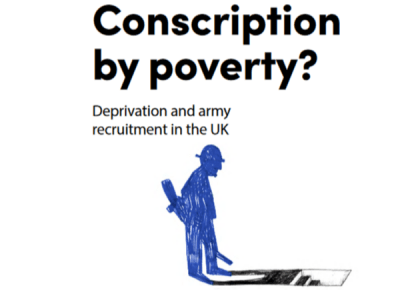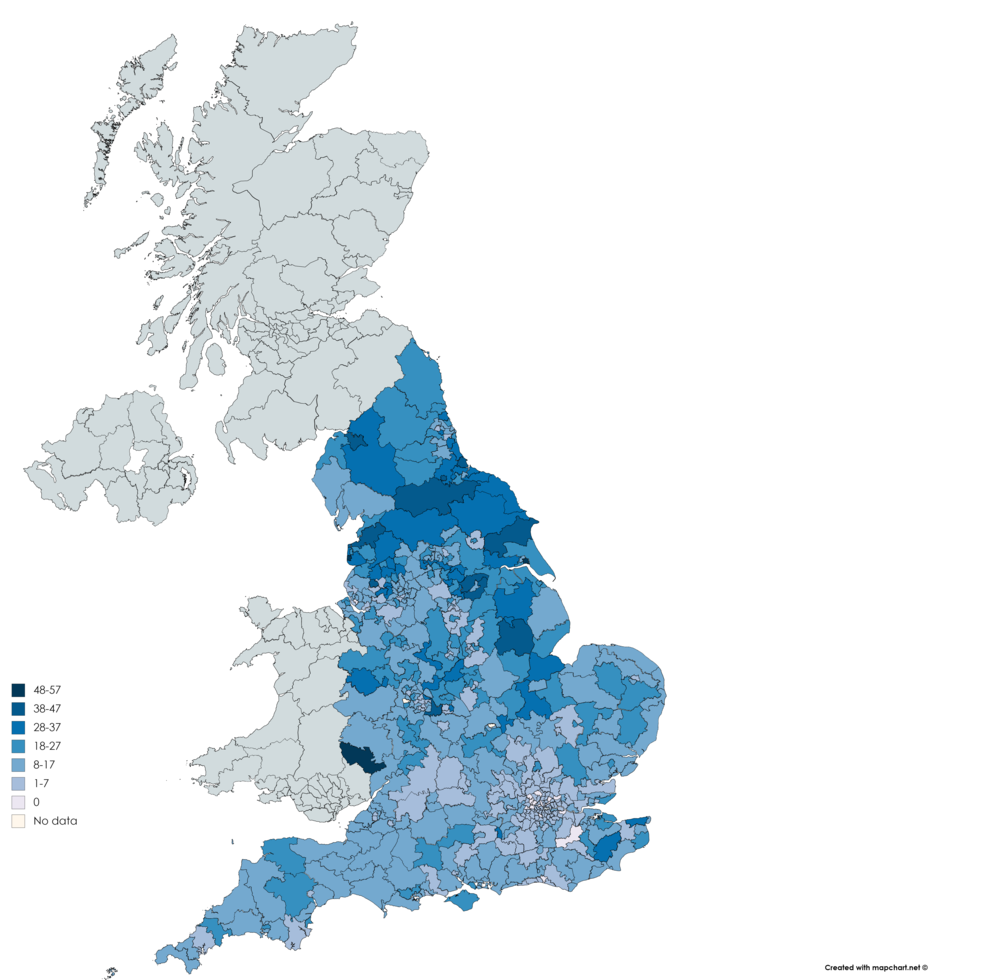British army targets youngest and poorest for riskiest roles

The British army is intentionally targeting young people from deprived backgrounds for the roles carrying the greatest risks in war, according to a report launched today by the Child Rights International Network (CRIN).
The new study, ‘Conscription by poverty? Deprivation and army recruitment in the UK’ states that the UK is the only country in Europe to recruit from age 16; more soldiers are recruited at 16 than any other age.(1) Teenagers from the poorest areas are targeted despite evidence that enlistment at a young age is detrimental to mental health and social mobility.
As teenagers in England and Wales receive their GCSE results, the report concludes that remaining in education is better for their welfare and prospects than enlisting at 16.
According to the report:
- New research shows that in England from 2013 to 2018, army recruitment of 16- and 17-year-olds was 57% higher in the poorest fifth of constituencies than the richest fifth.(2)
- Army recruitment marketing is focused on the poorest towns and cities, particularly families with an annual income of around £10,000.(3)
- Four-fifths of the most deprived young people in England now stay in full-time education after age 16, but marketing for the military encourages them to leave education for the army.(4)
- A third of recruits who enlist aged under 18 drop out before completing training, leaving them out of education and work.(5)
- Recruits aged under 18 are sought particularly for the frontline infantry; the army’s riskiest job.
- The army’s youngest recruits, especially those from deprived backgrounds, are most susceptible to stress-related mental health and behaviour problems associated with military life.(6)
Map: 16- and 17-year-olds enlisted into the British army in English constituencies (April 2013 to April 2018)

The report uses official sources to show that, in general, early enlistment is detrimental to social mobility; government claims that the army is a reliable route out of poverty for young people are unjustified. The report recommends that the government make the transition to all-adult armed forces and, in the interim, commission a study into the socioeconomic and health outcomes of soldiers enlisted as adolescent children, including the many who leave during training.
CRIN Campaigns Coordinator, Charlotte Cooper, said:
“The army is leaning on teenagers from the most deprived backgrounds to fix its recruitment crisis, using them to fill the riskiest roles because it can’t persuade enough adults to enlist. Yet the evidence shows that this group is the most likely to suffer negative health impacts from a military career.
“A military setting is unambiguously incompatible with the fundamental rights and welfare of children and young people, particularly those from a troubled background. They deserve better: meaningful civilian opportunities for education and employment..”
Notes to Editors
- Conscription by poverty? Deprivation and army recruitment in the UK is a report by the Child Rights International Network (CRIN). The report was produced for the campaign for a global minimum enlistment age of 18, including in the UK. This programme was previously based at Child Soldiers International, transferring to CRIN in June 2019.
- CRIN is a creative think tank that produces new and dynamic perspectives on human rights issues, with a focus on children’s rights. We press for rights – not charity – and campaign for a genuine shift in how governments and societies view and treat children. Through research, artwork and our vision for the future, we encourage people to think critically about the world and challenge the status quo.
Footnotes
1. Ministry of Defence, Biannual Diversity Statistics, 2019.
2. C Cooper and D Gee, ‘Youngest British army recruits come disproportionately from England’s most deprived constituencies’, 2019. Available at https://tinyurl.com/yx8osqhz
3. See section 3 of the report, ‘Socioeconomic targeting in recruitment policy and practice’.
4. See section 4 of the report, ‘Impact of early enlistment on social mobility’.
5. Of the 7,680 minors who enlisted in the army in the four-year period between 2012-13 and 2015-16, 2,470 (32 per cent) dropped out before completing their phase 2 training. MoD, Response to Written Question 116489, 2017, https://bit.ly/2SDuckC [shortened link]; MoD, Biannual diversity statistics, 2018.
6. See section 4 of the report, ‘Impact of early enlistment on social mobility’.
See more: recruitment, recruitment age, risks, social deprivation









